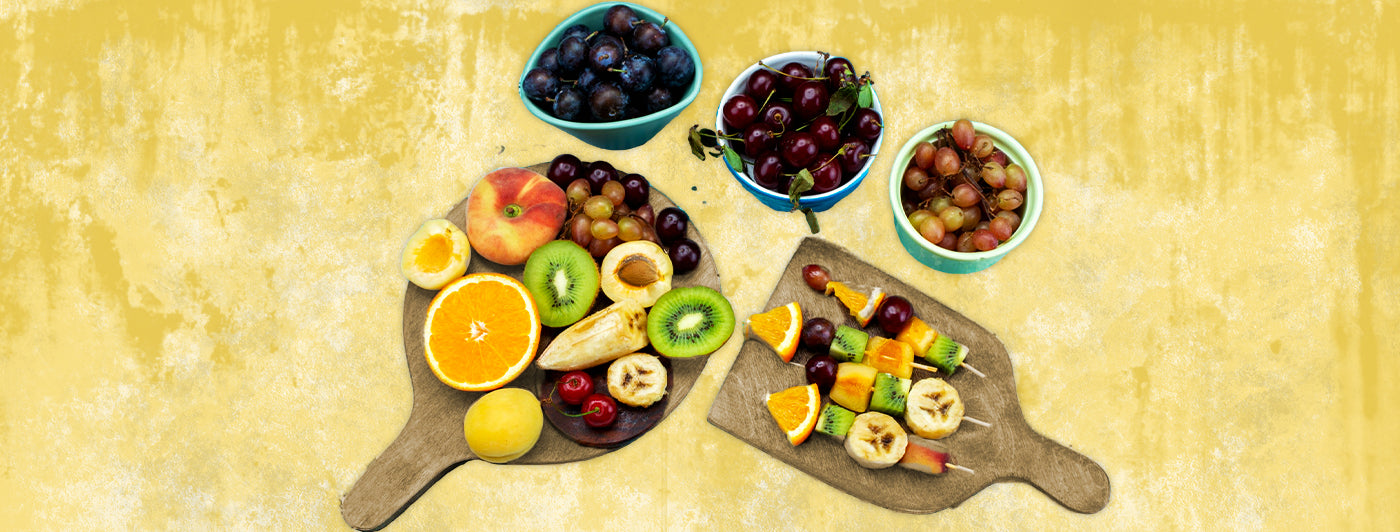When it comes to maintaining a healthy diet, fruits are often celebrated for their vitamins, minerals, and antioxidants. But did you know some fruits are also excellent sources of protein? If you’re looking to boost your daily nutritional intake, these high protein fruits can complement your diet and provide a natural way to meet your body’s protein needs.
Why Include High Protein Fruits in Your Diet?
Protein is an essential macronutrient that supports muscle repair, tissue growth, and overall metabolic health. While fruits are not typically associated with high protein content, certain varieties can help fill the gap for individuals seeking plant-based protein options. For those with protein deficiency symptoms in adults, such as fatigue, hair loss, or weakened immunity, incorporating these fruits can make a significant difference.

1. Guava
Guava tops the list with approximately 4.2 grams of protein per cup. It’s not just high in protein but also rich in vitamin C, which boosts your immune system. Enjoy it fresh or in smoothies for a delicious protein punch.
2. Avocado
While commonly known for its healthy fats, avocado also contains around 3 grams of protein per cup. This creamy fruit is perfect in salads, on toast, or even as a base for vegan desserts.
3. Blackberries
Packed with about 2 grams of protein per cup, blackberries are a great snack or topping for oatmeal. They’re also loaded with antioxidants, supporting overall cellular health.
4. Jackfruit
Jackfruit provides roughly 2.8 grams of protein per cup. Its versatility makes it a favorite for plant-based recipes, from savory curries to vegan tacos.
5. Kiwi
One cup of kiwi offers about 2 grams of protein. This tangy fruit is not only a protein source but also aids digestion, thanks to its high fiber content.
6. Apricots
With about 2 grams of protein per cup, apricots are a nutritious addition to your diet. They are also a great source of vitamin A, which supports eye health.
7. Bananas
Though not traditionally considered high in protein, bananas contain about 1.3 grams per cup and are an excellent source of quick energy for workouts. Pair them with a plant based protein powder for a post-workout smoothie.
8. Mulberries
Mulberries provide about 2 grams of protein per cup, making them a sweet and nutritious snack. They are also rich in iron, which can help prevent deficiencies in a plant-based diet.
9. Oranges
Oranges contain about 1.2 grams of protein per cup and are known for their refreshing taste and high vitamin C content. They’re ideal for boosting hydration and immunity.
10. Cherries
Cherries offer around 1.6 grams of protein per cup. Their anti-inflammatory properties make them an excellent choice for post-workout recovery.
The Role of High Protein Fruits in a Balanced Diet
Incorporating these high protein fruits into your daily routine can complement other protein sources, such as legumes, nuts, and seeds.They are especially valuable in a diet plan for muscle gain, where adequate protein intake is crucial to support muscle repair and growth. Additionally:
- Convenient and Portable: Fruits like bananas, blackberries, and apricots are easy to carry and consume on the go, making them a perfect choice for busy schedules.
- Rich in Micronutrients: These fruits not only provide protein but also offer essential vitamins, minerals, and antioxidants, enhancing overall health and immunity.
- Low in Fat: Unlike some other protein sources, most high-protein fruits are naturally low in fat, making them suitable for weight management and heart health.
- Natural Sweetness: Their inherent sweetness can curb sugar cravings, reducing the likelihood of indulging in unhealthy snacks.
By combining high-protein fruits with other plant-based proteins, you can create balanced meals that are nutritious, satisfying, and supportive of your fitness goals.
Are Fruits Enough to Meet Your Protein Needs?
While high-protein fruits are a great addition to your diet, they may not be sufficient as the sole source of protein, especially for those with higher protein requirements, such as athletes or individuals following a muscle-building regimen.For such cases, options like vegan protein powder for muscle gain can help meet daily protein targets effectively.
How to Incorporate High Protein Fruits into Your Diet
- Breakfast Smoothies: Blend fruits like bananas, blackberries, and guava with almond milk and a scoop of plant-based protein powder for a nutrient-rich start to your day.
- Snacks: Keep dried apricots, mulberries, or fresh cherries on hand for an easy, high-protein snack.
- Salads: Add slices of avocado, kiwi, and oranges to your greens for a colorful and protein-packed meal.
- Desserts: Create a guilt-free dessert with mashed jackfruit or a kiwi and orange fruit salad drizzled with a natural sweetener.
Conclusion
Adding high protein fruits to your diet is an enjoyable and natural way to boost your daily protein intake. Whether you’re looking to enhance your fitness journey or simply maintain a balanced diet, these fruits can support your nutritional needs. Combine them with a well-rounded diet and supplements to achieve optimal results. When selecting supplements or processed foods, be mindful of additives like class 2 preservatives, which may impact health if consumed excessively. Prioritize natural, wholesome foods to support long-term health.











